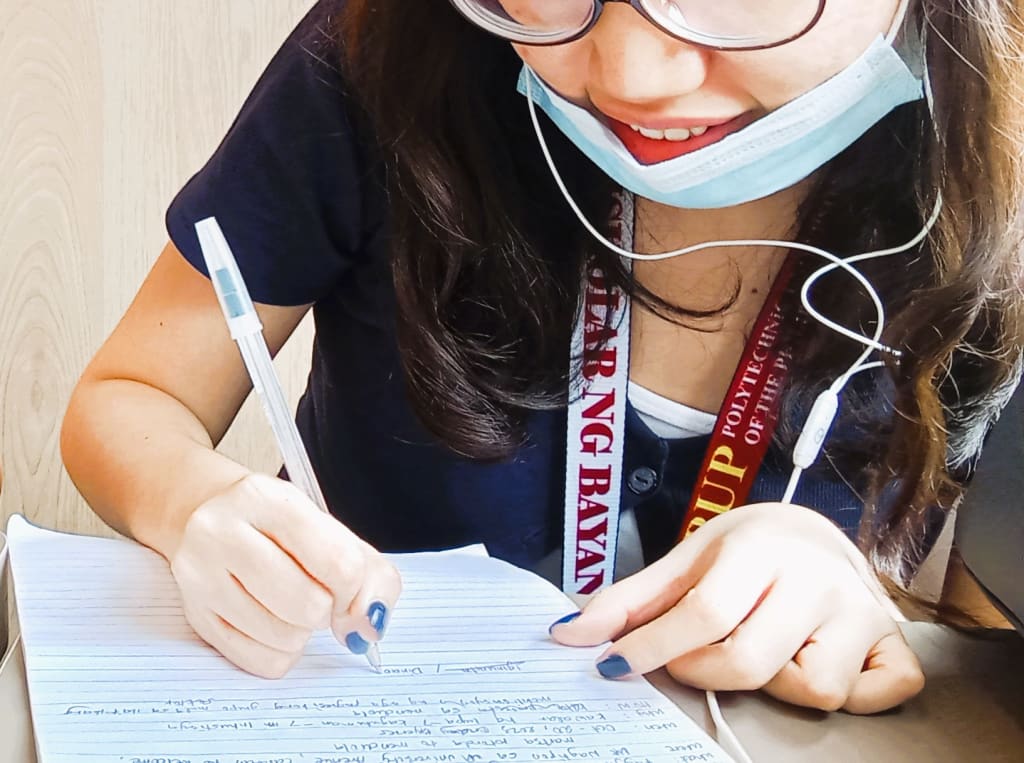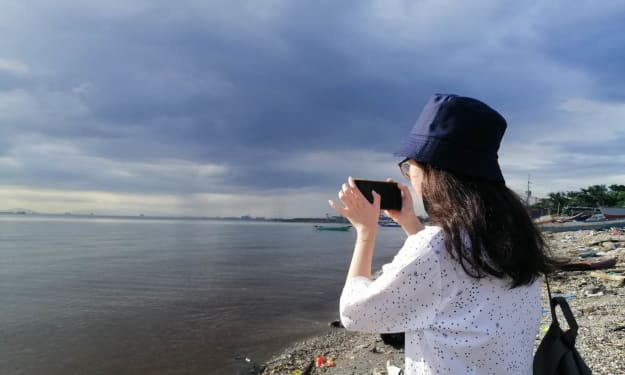A Thought About the Truth
In journalism, the truth is not always as it seems.

Beneath the massive sea of knowledge that lies within impressionistic minds, there’s always an underlying depth that can’t be reached–the cavern of certainties, wherein bides the pure, unadulterated truth.
Just like in every daring mission to get to the bottom of Earth’s oceans, we dive in and strive to seek the very core of reality through various means and techniques. Dig as we might, though, the truth remains impossible to be fully uncovered down to its very root.
Like Sand in One’s Hand
Truth is often a matter of perspective, which then ultimately sullies its objectivity to a certain extent. It is said that everything a person deems as a fact is also the truth in the eyes of the other. With humans being subjective by nature, only through applying the appropriate methods and disciplines can they know and communicate the truth.
Truth is defined as a concept that has more times of being pursued than attained. Not only do humans’ subjective tendencies hurdle their pursuit of the truth, but so does the world around them. One's motives in exploring a certain topic frequently end up being interpreted in a different way from what they intend to.
Truth is elusive; it is like sand that slips through our fingers once grasped by the hand. We can hold it, but some will fall off in the process. When people do succeed in grasping hold of the truth, it doesn’t mean they’re able to grab it whole since some fragments will inevitably escape.
Even so, I look up to journalists who remain firm and zealous in divulging facts and information to the public. They continue to stand up for what’s true no matter how equivocal or unattainable it is, or even when they face a lot of criticism from the skeptical audience. There are journalists who never falter in seeking and speaking the truth despite the potential perils, which may even include death in the vanguard of exposing a corrupted system or spearheading the rise of controversial issues. What’s even more commendable is that they’re doing all these not regardless of but because of the challenges and obstacles–a commitment with consequences, indeed.
While informing the public is the primary role of the press and entertaining the most applied one, educating is arguably the most important objective. Striving to elevate the bar of discussion and debate on a particular topic through imparting knowledge, though knowledge is provisional because truth isn’t always as it seems or stays as it is for the rest of Earth’s lifespan, is said to be an essential part of a journalist’s duty even if it’s not always done. For that reason, they ought to be more unyielding when pursuing the truth and remain unrelenting in their fixity of purpose. At the same time, the press should be given the emancipation to apply the necessary methods and disciplines of objectivity without being repressed.
Although it’s disheartening to know the idea of truth being elusive, as well as the situation of journalists who struggle to do something that should be as simple as stating the facts due to political and social curtailments, it is still inspiring and encouraging to see all the hard work they are pouring in fulfilling their obligations.
Then again, the true riches in life are those that can be found at the end of a narrow path. Even if there aren’t many people who tread it, that doesn’t mean all the troubles, adversities, and trials aren’t worth the rewarding feelings of accomplishment and triumph that come along with their contributions to society.
Accuracy: Sister to Honesty, Mother to Credibility
Words are both powerful and many.
Reading an impactful message can leave a long-lasting impression on people that can drive them to apply what they learn and act on the matter. That is why ensuring that each detail is exactly aligned with the truth is of utmost importance. Unless the facts are verified enough, the effect of these words on people can turn out to be the same as being merely enamored with fantasy instead of reality –
And that's not what news is supposed to be all about.
Every journalist must be grounded in factual accuracy. They should be confident enough to stand up for the methods and practices they used to attain it. Every detail counts as a pivotal piece that can either turn the entire story into a failure of a source or a successful mirror of reality. Sharp-eyed and instinctive, journalists should take several pauses in the middle of the crafting process to make sure that accuracy is still the ruling principle of the whole phase of writing.
That said, journalists must draw a borderline between what's real and not whenever they're in pursuit of impeccably delivering the message. For better storytelling and a more engrossing flow of events, broadcast news tends to sprinkle a considerable amount of fiction when it comes to narrating documentaries. However, there are some ways to make it work together with good journalism, which is defined as the discipline of fact and verification. The use of CCTV cameras, for instance, provided an effective way of verifying information, and at the same time, served as an effectual element of compelling storytelling.
The function of accuracy plays a big role in giving meaning to the whole story. Once it’s pulled out of the picture, a narration that is supposed to be based on a true event might lose its original purpose; it will no longer reflect reality. If the discipline of verification isn’t founded, the formation of misconceptions and myths will be instituted instead, and worse, the audience might unknowingly take it all in as proven information once they see no reason to be skeptical.
Then again, one of the reasons why fake news becomes prevalent is because the content often leaves a lasting impression on people. Our tendency to choose captivating narratives over factual accuracy makes us more susceptible to false claims and myths. Fact-checking is also hardly applied by those who are merely interested in being informed or entertained.
Being interested in riveting stories is not the problem here, though. Rather, it's the existence of misinformation itself, which falls on the writer's irresponsibility. Journalists owe an obligation to truth, but no matter how much they play as its seekers, everything will only be meaningless if the way they communicate it to the public is inaccurate. Double-checking the facts is equally important to attaining the truth and relaying it.
A journalist's honesty is evident in the level of accuracy in their work while this accuracy reflects their credibility as a writer.
This whole discussion serves as a heads-up for me–one that will always remind me just how important fact-checking is. I must make it a habit of mind to look back to where I come from whenever I finish writing a topic. After the long grueling search for facts and the strict application of different methods in objectivity and a compelling narrative construction, I must be completely confident of my work's authenticity–every nook and cranny of it.
Although the truth is said to be an ungraspable concept, we should at least make sure that the one we have now is delivered with pure intentions and factual impeccability.
About the Creator
Angela Cantiga
Writing to express, not to impress.
Hello! I am Angela, a web novel author and journalism student at age 22. I love writing stories, reading books, listening to music, and watching animated series–also, sleeping.






Comments (1)
Great! This was very well written! Great work!